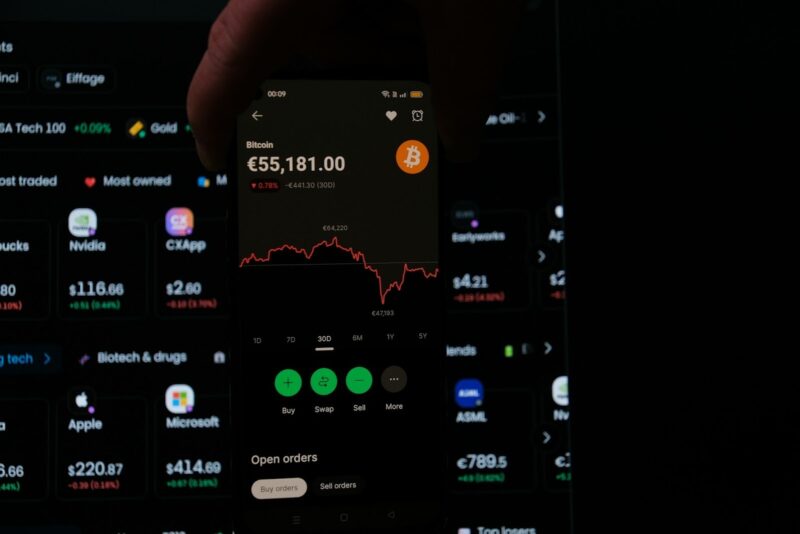Table of Contents
ToggleWelcome back to your favorite site dedicated to digital currencies and innovation. Whether you’re a regular visitor or a new arrival, we’re thrilled to have you here as we embark on a unique journey today. We’re not just covering the most important stories from the world of cryptocurrencies; we’re also exploring how they’re reshaping professional sports. So, let’s dive in together and discover some fascinating additions and insightful views.
Approaching cryptocurrencies from a fresh angle, we want to investigate how it’s affecting professional sports and competitions. Using the most popular token, Bitcoin, for our study, we highlight how crypto is taking sports like soccer, American football, and basketball into the 21st century, bringing fans along for the ride. There’s more going on than you might think.
Some ways Bitcoin has improved sports are more obvious than others. For example, you’ll likely know you can use crypto to wager on sports results at Georgia betting apps. But did you know some soccer teams in Europe, including Barcelona and Tottenham Hotspur, have tokens that they sell to fans? Yes, crypto is taking sport into the modern market at an impressive rate, as we’ll demonstrate in this article.
Action-packed Summer
Why is it important and relevant to know how crypto drives sport, and why is now the best time to gather that information? The crypto and professional sports industries seem perfectly suited and are forging ahead to create an exciting future. The summer of 2024 will be a memorable one for sports fans, with plenty of hard-hitting action and an opportunity to showcase the potential behind that collaboration. Lots is going on over the next few months.
We begin in June with the return of the UEFA European Championship. This international soccer tournament occurs every four years, but Euro 2020 was delayed 12 months due to COVID-19 and the resulting lockdowns, hence the quicker-than-usual turnaround. The action moves to Germany as the host nation aims to win another title and become the tournament’s most successful team ahead of nearest rivals Spain.
No sooner will the action finish in Germany than sports fans head to Paris for the 2024 Summer Olympic Games. Like the Euros, the Olympics have had a three-year turnaround due to the pandemic, and Paris is a fitting backdrop as the comeback begins. The leading sports-loving nations will arrive in the French capital in summer determined to win gold.

In addition to Euro 2024 in Germany and the Olympic Games in France, there is also a monumental boxing event in Saudi Arabia. World heavyweight champions Tyson Fury and Oleksandr Usyk put their belts on the line to become unified champion. This bout will give fans something that’s been missing for a quarter of a century: one recognized champion.
Ready for an unforgettable summer sports party? Keep reading as we showcase what part Bitcoin will play in the action.
Sponsorship
Bitcoin’s growing prominence has led to an increase in sponsorship and partnership opportunities between cryptocurrency companies and professional sports organizations.
Major sports franchises, including football clubs, basketball teams, and racing teams, have embraced Bitcoin by forging strategic alliances with cryptocurrency firms. These partnerships not only provide teams with additional revenue streams but also enhance their brand visibility and appeal to a tech-savvy audience.
The NBA’s Sacramento Kings became the first professional sports team to accept Bitcoin for ticket and merchandise purchases, setting a precedent for other teams to follow suit.
Athlete Endorsements
Athletes, known for their entrepreneurial spirit and appetite for innovation, have been quick to embrace Bitcoin both as an investment vehicle and as a source of endorsement income.
High-profile athletes across various sports have publicly expressed their support for Bitcoin, with some even allocating a portion of their salaries to cryptocurrency investments. Additionally, athletes have signed endorsement deals with cryptocurrency companies, leveraging their star power to promote Bitcoin to a wider audience.

This trend underscores Bitcoin’s growing mainstream acceptance and highlights its appeal as a lucrative investment opportunity for athletes seeking to diversify their portfolios.
Fan Engagement
Bitcoin has revolutionized the way fans engage with professional sports teams and purchase tickets to sporting events. Several sports organizations are now embracing cryptocurrencies, such as Bitcoin, as payment for tickets, merchandise, and concessions. This trend, combined with the growing use of crypto debit cards like the Bybit Card, offers fans even greater flexibility and convenience when making these purchases. The Bybit Card enables instant spending of crypto holdings, providing a seamless way to enjoy the game.
Moreover, the integration of Bitcoin into ticketing systems has the potential to enhance security and reduce fraud, ensuring a seamless and transparent experience for fans. By embracing Bitcoin, sports teams can cater to a tech-savvy audience while tapping into new revenue streams and expanding their fan base.
Sports Management
Beyond its role as a digital currency, Bitcoin’s underlying technology, blockchain, holds immense potential to revolutionize various aspects of sports management.
Blockchain technology offers secure and transparent solutions for ticketing, merchandising, and fan engagement, reducing the risk of fraud and enhancing operational efficiency. Moreover, blockchain-based platforms can facilitate the creation and trading of digital collectibles, such as player cards and memorabilia, further enhancing fan engagement and monetization opportunities.
By integrating blockchain technology into their operations, sports organizations can unlock new revenue streams, streamline processes, and enhance the overall fan experience.
Globalization
Bitcoin’s borderless nature has facilitated the globalization of sports investment, enabling fans from around the world to invest in their favorite teams and athletes through cryptocurrency platforms.
This democratization of sports investment has the potential to reshape the sports industry by providing fans with a direct financial stake in the success of their teams and athletes. Additionally, Bitcoin’s decentralized nature has opened up opportunities for international partnerships and collaborations, fostering greater diversity and inclusivity within the sports ecosystem.
By embracing Bitcoin, sports organizations can tap into a global pool of investors and fans, driving growth and innovation in the industry.





